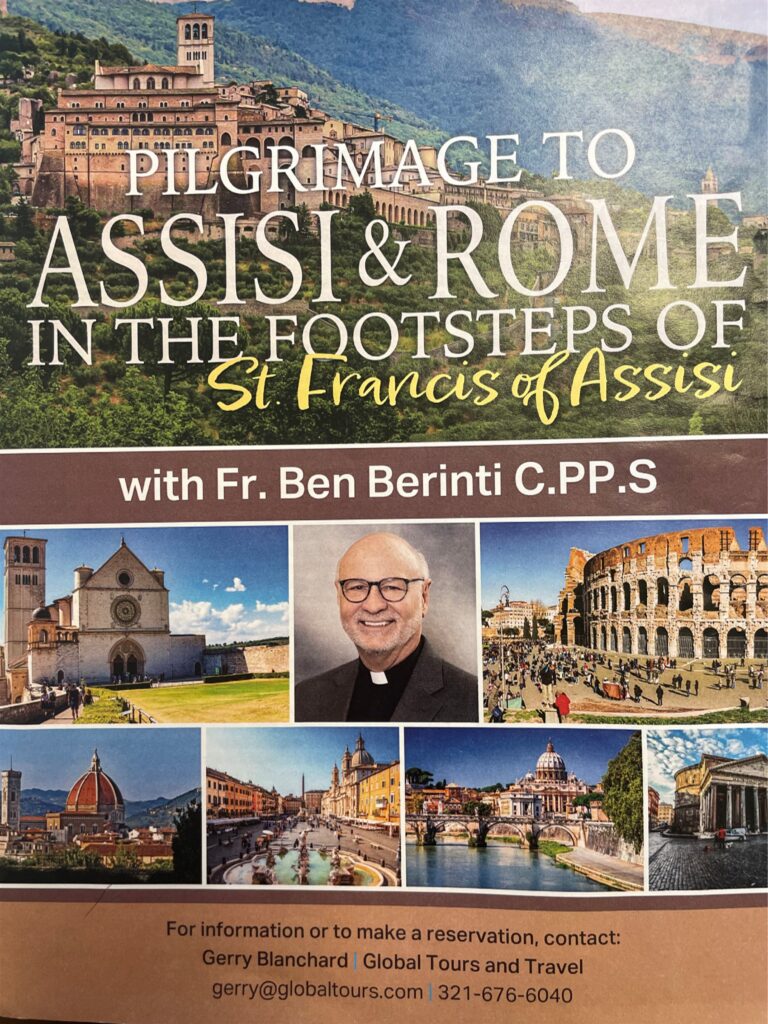
ADVENT 2025 JUBILEE PILGRIMAGE TO ROME & ASSISI WITH OUR PASTOR, FR. BEN


“Devotion to the Precious Blood is not a spiritual option, it is a spiritual obligation, and that not only for priests, but for every follower of Christ…. Devotion, as we know, is a composite of three elements: It is first- veneration, it is secondly- invocation, and it is thirdly- imitation. In other words, devotion to the Precious Blood of Christ, the Lamb of God who was slain, is first of all to be veneration on our part, which is a composite of knowledge, love and adoration. We are to study to come to a deeper understanding of what those two casual words, Precious Blood, really mean.”
– from The Precious Blood of Christ, by Fr. John A Hardon, SJ
“Precious Blood, ocean of divine mercy: Flow upon us! Precious Blood, most pure offering: Procure us every grace! Precious Blood, hope and refuge of sinners: Atone for us! Precious Blood, delight of holy souls: Draw us! Amen.”
| In many parishes, young people will have their Vacation Bible Schools (VBS) in the month of June, but here at ICC, the adults will have their version: “THE TIKI TIME SUMMER SCHOOL OF SPIRITUALITY” in July! |